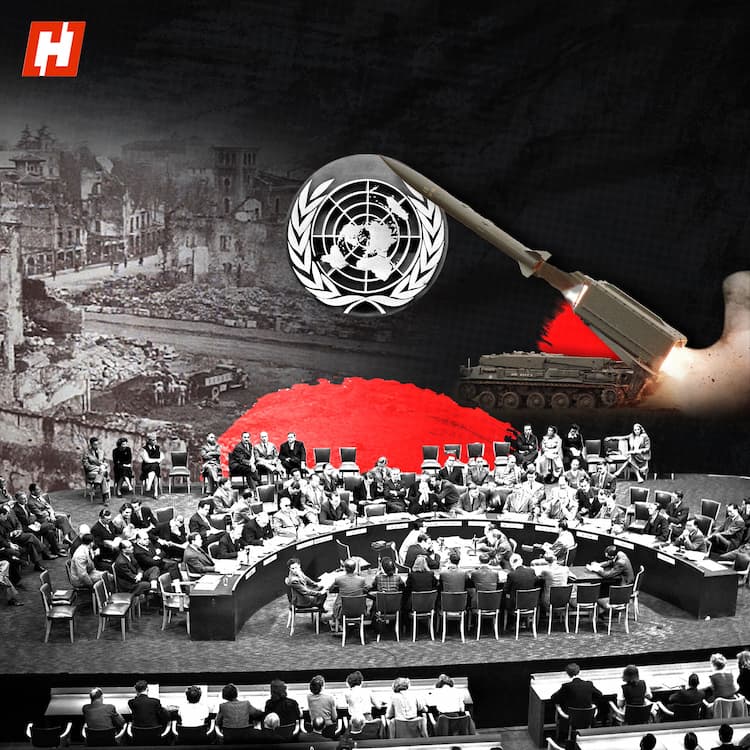The Rewards for Justice program of the US’ Department of State is offering up to $10 million for information on Hezbollah, the Lebanon-based radical Shia militia’s activities in South America.
In a post on X, the RFJ calls for tips on Hezbollah’s network of “smuggling, money laundering, or other financial mechanisms in the Tri-Border Area”.
For context, the Tri-Border area or TBA refers to the border of Paraguay, Argentina and Brazil.
What's Hezbollah up to in South America?
When one thinks of these places, beyond obviously football, they’re usually thinking of Argentina’s famous Iguazu Falls or the Amazon rainforest in Brazil or Paraguay’s wide array of agricultural exports. But dig deeper and the TBA holds something darker - organised crime.
According to the US Department of Justice, the TBA is a thriving hub for illicit activities including drugs, arms and human trafficking, money laundering, and other lucrative criminal operations.
Furthermore the DoJ says that the TBA is geographically, socially, economically, and politically conducive to organized crime, made worse by the rampant corruption of public officials. This makes it especially appealing to Islamic terrorist organisations, including Lebanon-based Hezbollah, who use the TBA’s vulnerability to support their terror activities.
Hezbollah’s fight to end Israel’s “existence”
Iran and Syria backed Hezbollah, meaning "Party of God" in Arabic, emerged from Shia militias formed to resist Israel after its invasion of southern Lebanon in 1982, during Lebanon's 1975-1990 civil war. Officially announcing its existence in 1985, Hezbollah declared that its confrontation with Israel "should only end when it has been removed from existence".
No wonder then, it attacked Israel following its massive military offensive in Gaza that began as a response to Hamas’ October 2023 assault on Israel from Gaza. It has repeatedly declared that only a ceasefire in Gaza would stop any further attacks.
The US, a key ally of Israel, has its own issues with Hezbollah.
The US holds them responsible for multiple large-scale terrorist attacks which include the 1983 suicide truck bombings of the US Embassy in Beiruit and the US Marine barracks and the 1985 hijacking of TWA flight 847.
Officially designating Hezbollah a Foreign Terrorist Organization in 1997, the US has vowed for decades to fight them.
Many US leaders praised the Israeli Defense Forces for killing Hezbollah’s longtime leader, Hassan Nasrallah, in a 2024 air strike on Beirut. This included then US President Joe Biden who saw it as an appropriate action and “a measure of justice for his many victims”.
How the US aims to fight Hezbollah
Nasrallah had transformed Hezbollah into one of the most heavily armed, non-state military forces in the world. By killing Nasrallah, and eliminating most of their leadership, Israel forced Hezbollah to back off. But the group retains some military capabilities, as well as influence in Lebanon's political system. According to reports, the rebels have held one to three seats in each Lebanese government since 1992.
Experts suggest that the group's main challenge now is money, and that’s exactly what the US is going after.
Just days before the May 19 announcement by RFJ, the US Treasury Department’s Office of Foreign Assets Control or OFAC declared that it was targeting “two senior Hezbollah officials and two financial facilitators for their roles in coordinating financial transfers for Hezbollah”.
History suggests that money can be a great motivator. This isn’t the first time and most likely won’t be the last time the RFJ tries this ploy. Since it was set up in 1984, The Rewards for Justice program has reportedly paid more than $150 million to more than 100 people for providing information about terrorists or preventing terror attacks.
So if you know something, you know who to call.





